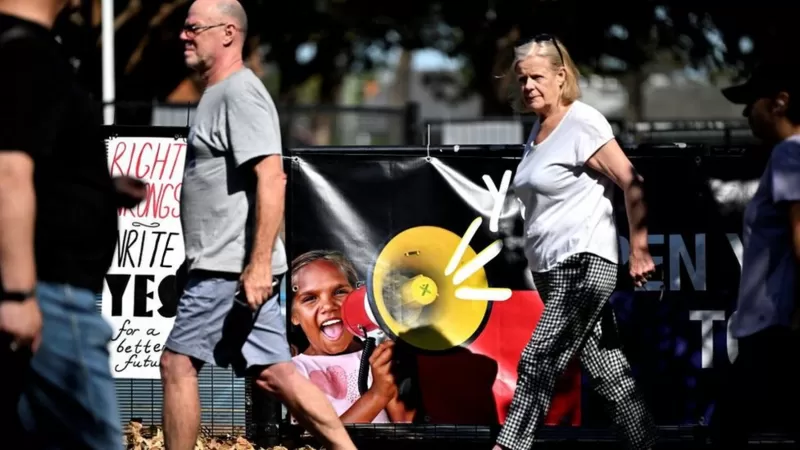Referendum: Australia Overwhelmingly Rejects Indigenous Rights Proposal
Australia has overwhelmingly rejected a plan to grant greater rights to Indigenous people in a recent referendum, as all six states voted against a proposal to amend the constitution to officially recognize Indigenous citizens and establish an advisory body to the government.
Prime Minister Anthony Albanese acknowledged the defeat, stating, “When you aim high, sometimes you fall short. We understand and respect that we have.”
Although the opposition leader Peter Dutton viewed the result as “good for our country.”
The referendum, known as “The Voice,” marked Australia’s first such vote in over 25 years. With nearly 70% of the vote counted, the “No” vote led the “Yes” vote by 60% to 40%.
The rejection of the proposal came after a contentious and often heated campaign.
Supporters argued that enshrining Indigenous peoples in the constitution would foster unity and usher in a new era. On the other hand, opponents contended that the idea would be divisive, create distinct “classes” of citizens, and hinder government decision-making.
They were criticized for their appeal to undecided voters with a “Don’t know? Vote no” message and for spreading misinformation about the plan’s effects.
The outcome now leaves Prime Minister Anthony Albanese searching for a way to advance his vision for the country, while a resurgent opposition seeks to capitalize on its victory.
Prime Minister Anthony Albanese called for unity in the wake of the divisive debate. He emphasized that Australians should move beyond this disagreement, recognizing that they are all Australians, and the referendum aimed to address the historical disadvantage faced by Aboriginal and Torres Strait Islander people.
Mr. Dutton expressed that Australia should not have needed such a vote, highlighting what he saw as the divisive nature of the referendum.
Leading No advocate Warren Mundine stated that this referendum should never have taken place, as it was based on the false premise that Indigenous people do not have a voice.
For some in the Yes camp, the result was devastating, with accusations of dishonesty and misinformation in the No campaign. Yes advocate Thomas Mayo emphasized the impact of those who had misled the Australian people during the campaign.










